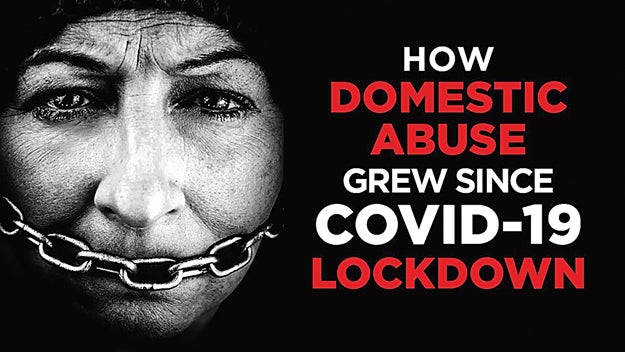COVID-19 and Domestic Violence: There is help, there is hope
Published 4:06 pm Tuesday, October 6, 2020

- Contributed content During the COVID-19 pandemic, it is believed that domestic violence has increased in risks for both spousal and child abuse. Included are resources to help those in need.
|
Getting your Trinity Audio player ready...
|
Safer at home may be the case during COVID-19, but for victims of domestic violence, it’s quite the opposite.
“COVID-19 has significantly increased the risk of domestic violence,” said Dolly Reaves, Project Coordinator for the Carter County Drug Prevention Coalition.
Domestic violence has long been a major issue, prior to the pandemic, however, as tensions rise and more individuals are at home, whether for work or school, risks are increasing.
“Stress levels are high, uncertainties over the future can create a slew of emotions, and children and spouses being home together can become easy targets for abuse,” explained Reaves.
According to Reaves, risks of domestic violence are also worse in terms of detection. Prior to the pandemic, one major sign of abuse was isolation from loved ones. Now, with social distancing and the importance of staying home becoming the norm, this may be harder to be noticed.
“A domestic violence victim is likely to be isolated from their friends and family, not as likely to attend gatherings with friends and family,” Reaves explained. “Now with nobody doing those things, isolation has become more serious and impactful.”
Reaves urges reaching out to others and seeing what’s going on as best as you can, trying to see if you notice any changes in their behavior or lack of communication. For teachers, if a child seems more withdrawn from conversations, and classes, etc. this could be an indicator as well.
“I think the signs are going to be a whole lot trickier during this time with people staying home more in general,” she said.
While the pandemic continues on, work to combat domestic violence is as well.
The Carter County Drug Prevention Coalition works to fight against substance abuse and its causes. They work against things like generational cycles of abuse, substance abuse disorder, etc.
“We already know that substance abuse and other adverse childhood experiences put children at greater risk,” said Reaves. “So the more we do now, the better.”
This coalition offers a variety of services to aid in overcoming these traumas and problems facing the community. One of these is the Triple P Parenting Program, which is designed to help give parents/guardians the tools they need to feel confident in raising a child. There are other parenting opportunities available as well and monthly educational meetings via ZOOM on the first Wednesday of every month at 3 p.m.
The coalition offers youth programs as well, including mentoring.
Reaves stressed the importance of ACEs and working to overcome these cycles. Those with adverse childhood experiences face trauma that can negatively impact them later in life, posing threats to continue the cycle of abuse, etc. in the future.
This all ties in with working as a community to overcome threats to others, such as domestic violence.
To anyone reading this article who may be a victim, or know someone who is, of domestic violence, there are resources that can help.
The following are online resources that can help gather information and get help.
National Domestic Violence Hotline: https://www.thehotline.org/resources/staying-safe-during-covid-19/
National Network to Eliminate Domestic Violence https://nnedv.org/latest_update/resources-response-coronavirus-covid-19/
Prevent Child Abuse America: https://preventchildabuse.org/coronavirus-resources/
The National Center on Domestic Violence, Trauma & Mental Health, a SAMHSA partner, recently released: Supporting Survivors’ Access to Substance Use Disorder and Mental Health Services During the COVID-19 Emergency: http://www.nationalcenterdvtraumamh.org/2020/03/covid-19-resources-for-advocates/
The Carter County Drug Prevention Coalition website (also check out their Facebook page): http://www.cartercountydrugprevention.org/contact.
According to Reaves, one major barrier in communication has been a lack of access to technology and the internet.
The following are numbers that can be called, perhaps the most crucial being the abuse hotline.
National Domestic Violence Hotline: 1-800-799-SAFE (7233)
The Carter County Drug Prevention Coalition: 423-297-1335
“Please reach out. There is hope,” said Reaves. “Call the National Domestic Violence Hotline. Reach out to us. We will plug you in with people. There is help. There is hope.”




